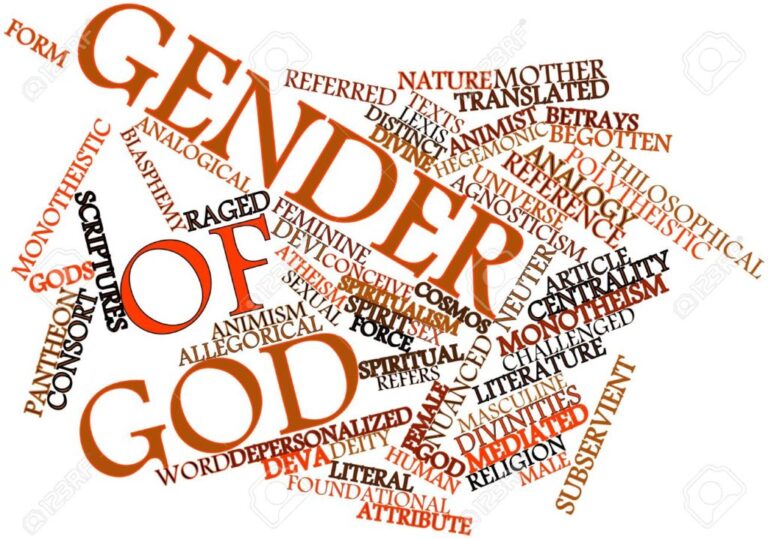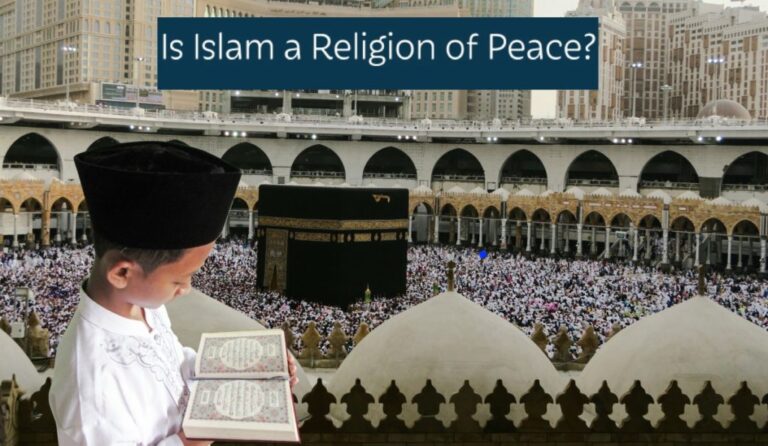“Is it logical to worship God?” Just the other day, one of my students, walked in to my office and asked me that question. Or why on earth does God need to be worshiped? Is he in need of attention? The answer is just out of this world!!
In a world that claims not to worship anyone or anything, how do we address this very important and often times forgotten question?
If there is no God, then worshiping God is as foolish as a child writing a letter to Santa Claus hoping for a response.
Now what if God does exist? If he does, we should worship him, yes, but why?
Before we begin we need to define God. The God I am referring to is the greatest possible being that exists or could possibly exist.
This God (the Judaeo-Christian God) would also have certain in-commutable attributes. These characteristics or properties are traits that God, and only God would have. By the time we are finished you will see that this God deserves nothing less than our adoration, veneration, our very lives and of course our worship.
Basically, God is the being who is not only the creator of all that is, but also the most maximally perfect being there could possibly be.
He has the following attributes. (Special thanks to the scholars at Attributes of God)
God is Personal – God is a self-conscious Being capable of thought, will, and interaction with His creation. We are persons made in the image of God, The imago Dei, that need each other, not only for our psychological and physical well being, but spiritually too. Get this, even God is never alone! Yes, Christians hold that God is a unity in community from all eternity– three persons, in one being. Three whos and one what. The Holy Trinity.
Omnipresence of God – God is present everywhere at all times. He knows and is intimately connected to all things in his universe. He is not the same thing as the universe, as the pantheists claim, rather he created the universe like an artist creates his portrait.
Charles Haddon Spurgeon helps us to understand what this means:
“I believe that every particle of dust that dances in the sunbeam does not move an atom more of less than God wishes,-that every particle of spray that dashes against the steamboat has its orbit as well as the sun in the heavens,-that the chaff from the hand of the winnower is steered as the stars in their courses,-that the creeping of an [insect] over a rosebud is as much fixed as the march of the devastating pestilence, and the fall of the ..leaves from the [trees] is as fully ordained as the tumbling of an avalanche. He who believes in God must believe this truth.” (Sermons of the Rev. C.H. Spurgeon, of London, Volume 2 By Charles Haddon Spurgeon, Elias Lyman Magoon)
Omnipotence of God – God can do all things. God is all powerful. In my book, Debating Christian Theism in the article “The Coherence of Divine Power,” Philosopher Charles Taliaferro wrote
Divine power is not, then, an abstract or abstruse concept of maximal brute power (the power to do anything whatsoever), but a concept of praise-worthy power, the power of the best and the highest (optimus maximus).11”
Even with this omnipotence, there are things God cannot do. Like lie or sin or making logically impossible things like exist and not exist or create lying truth tellers or married bachelors. But if God can override the logic laws, then God can create 10,000 blueberry pancakes that he can’t eat and eat them at the same time or make rabbits he cannot catch and catch them. So if God is over and above the laws of logic, then he can do illogical things. Which I don’t think will work but it does address this problem.
God is able to do impossible things like part the red sea, or raise the dead but not illogical things. He can walk on water, but he cannot walk on water and not walk on water at the same time. That would be nonsense or illogical and John 1:1 says in “the beginning was the word, or LOGOS.” Logic is in the very nature of God.
Omniscience of God – God has all knowledge of everything including what may or may not be (all possible worlds and counterfactuals). See this link for more info. And get this, He still loves you, even though he knows all about everything negative or vile you did or may have done, given the opportunity.
Eternality or necessity of God – The Eternality of God refers to his timeless nature. God had no beginning, and will have no end. The necessity of God means that God is the only being that is necessary. Everything and everyone else is contingent on someone or something else for its existence. God needs no one , but everyone else and everything else, needs him.
Immutability or impassability of God – The Immutability of God means He cannot change in His nature, character or dependability. He is not overwhelmed by any emotion, he is not incapacitated or weakened or stifled by any event or any amount of grief or love. Rather, God is totally self-controlled. While God does grieve, and does passionately love, he does so completely on purpose. He weeps and he rejoices with us, but is never controlled by these emotions as we sometimes are.
Goodness or love of God – God is love, and he is the very standard of goodness itself. Note, being loving or good does not necessarily mean God is nice. Sometimes being not nice is the most loving thing to do. Grandfathers are nice to their grandchildren, but fathers are more than nice, they are loving. True love looks out for the best interest of the beloved, and sometimes, our best interest is beyond what we think it is. Sometimes it is painful.
This concept of God’s love is so amazing that he loves us not for what we do or any degrees or status we hold. That is why the concept of Grace alone is so important. Think of when a new born baby is born, think of the joy and bliss the mother and father have for this little one. They love him even though he did nothing to earn that love–that is grace. So it is with God. He loves us. Period. He loves completely. He loves us too much to keep us the way we are, so he offers redemption and hope for those of us who made a mess of our lives. That is expressed best by the incarnation, where he did not send an ambassador or a representative to us, he came himself. But that love allows itself to be hurt by allowing his children to not be with him if they so wish. So hell is an expression of the love of God as much as heaven is! For the opposite of love is not hate…see my post here to see what that is.
Immanence of God – The literal meaning of the immanence of God is “to be within” or “near” in relation to God’s creation. Immanence is closely related to God’s omnipresence, in that God is always present within the universe, though distinct from it. God is ‘within’ the universe in that God is its sustaining cause. God is active within His Creation.
See Attributes of God for a detailed list of the these and more with scriptural proof texts
Some great books on the issue are:
- Divine Attributes, by James Petigru Boyce
- The attrtibutes of God, by Arthur Pink
- The attributes of God, by Louis Berkhof
- Westminster Shorter Catechism – What is God?

Now, with the issue of the nature of God (barely) addressed, we can turn to the problem of worshiping God.
First, we should worship God, if he exists, which I believe he undeniably does, because, we will worship and do worship things anyway.
Whether it is money, sex, power, education, family or even harmless things like our favorite hobbies like chess. video games or even religion! When I say worship I do not necessary mean in a structured religious format.
Secondly, worship is the enjoyment of something worthy that overflows in joyous praise of it to the point of adoration. So then worshiping God is expressing our joy at the most worthy thing in all the universe. That is most logical.
C.S. Lewis wrote in the essay titled, “A Word About Praising,” in his short book,Reflections on the Psalms, pages 90–98 says:
I had never noticed that all enjoyment spontaneously overflows into praise unless …shyness or the fear of boring others is deliberately brought in to check it. The world rings with praise—lovers praising their mistresses, readers their favourite poet, walkers praising the countryside, players praising their favourite game –…I had not noticed either that just as men spontaneously praise whatever they value, so they spontaneously urge us to join them in praising it: “Isn’t she lovely? Wasn’t it glorious? Don’t you think that magnificent?”
The Psalmists in telling everyone to praise God are doing what all men do when they speak of what they care about. ….I think we delight to praise what we enjoy because the praise not merely expresses but completes the enjoyment; it is its appointed consummation.
It is not out of compliment that lovers keep on telling one another how beautiful they are; the delight is incomplete till it is expressed… The Scotch catechism says that man’s chief end is “to glorify God and enjoy Him forever”. But we shall then know that these are the same thing. Fully to enjoy is to glorify. In commanding us to glorify Him, God is inviting us to enjoy Him.”
Third, when we worshiping God in community, it creates a greater sense of joy than doing in private. So going to church to worship is just doing what we ought to be doing in private, now publicly.
Forth, when we worship God, it of necessity, must be exclusive. God does not desire we hold our allegiance to other gods or share our affections with others to worship them too. When a husband and a wife would share their romantic love with others that loves because less and less the more people you have in it.
So it is any wonder that God commands his people to have no other God in the very first commandment? Could it be an invitation of love?
In an existential understanding, romantic love cannot be romantic if it is spread out like a garment for all to partake. The love I speak of is Eros. Yes God loves us with Agape love, but how many of us forget that he expresses that sometimes in Eros also? A marriage is between two lovers. If you read up on Jewish marriages customs, you will see that the last super is a marriage proposal. God calls us to love no one more than him– alone. Not just because there is really nothing else worthy of our love, there is also no other ultimate reality to love. Eros demands exclusivity. All else is fatal and ultimately meaningless. Is 62:5 “…and as the bridegroom rejoiceth over the bride, so shall thy God rejoice over thee.” “On that day says the Lord you will call me my husband….”(Hosea 2:16) “I will betroth you to me forever…”(Hosea 2:19).
Our relationship with God is literally a marriage made in heaven. He will not share us with any one.
So then the very best way of expressing worship is from these words often quoted by Ravi Zacharias :
The definition comes from the famed archbishop William Temple: “Worship is the submission of all of our nature to God. It is the quickening of the conscience by his holiness; the nourishment of mind with his truth; the purifying of imagination by his beauty; the opening of the heart to his love; the surrender of will to his purpose—all this gathered up in adoration, the most selfless emotion of which our nature is capable.”
So worship brings together everything in my life under one united whole. It provides unity to all the diversity in my life. When I work, when I play, when I am a father and when I am a son, when I am a professor or when I am simply a man who made a terrible mistake, when I cry and when I die–worship brings it all together for one purpose.
What do you think?




